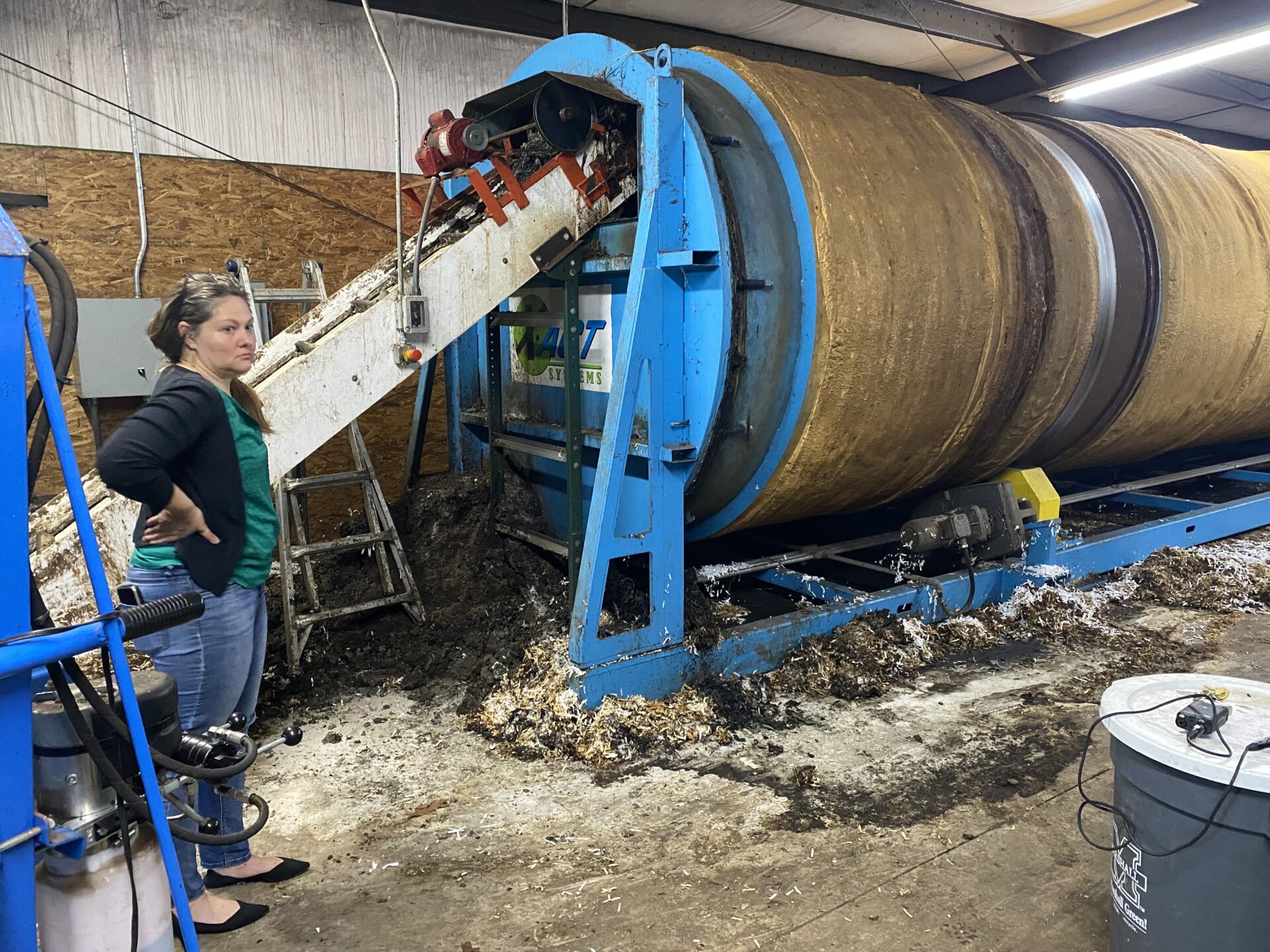Monday is Earth Day, an annual reminder of the growing importance of environmental conservation and sustainability.
Recycling is a major component of sustainability – and composting highlights recycling at the organic level. At Marshall University, West Virginia’s first commercial composting facility is spinning its wheels.
During lunch at Marshall University’s spacious Harless Dining Hall staff members will serve hundreds of meals, leaving food waste in the prep kitchen and on student’s plates. Marshall Dining Field Marketing Coordinator for Sodexo, Christopher Estrada, said there was a plan to unload those pounds of scraps.
“We did try at one point giving it to a pig farm,” Estrada said. “He would come by and pick up stuff and feed the pigs but then he stopped showing up.”
Beginning about a year ago, Estrada said food waste removal at all of Marshall’s dining facilities took a new exit route.
“Any trims from the vegetables or any leftovers are thrown into this green container with anything that’s organic,” Estrada said “That would include paper, bones, all that kind of stuff. And anything that is thrown away by the consumer is also sorted and thrown into there as a, you know, recyclable reusable thing.”
At Marshall’s Composting Facility a few miles off campus, the XACT Systems Bioreactor’s rotation drum slowly spins waste into compost.
Marshall Sustainability Manager Amy Parsons-White said Marshall is the only university in the world with this level of technology. She said it provides the ultimate in environmentally friendly aerobic digestion. The bioreactor turns organic material into compost in as little as six days.
“We started about a year ago, taking all food wastepaper, cardboard, and lawn waste from off of our campus, as well as horse manure from Heart of Phoenix horse rescue, and digesting it in our aerobic digester,” Parsons-White said. “It is used all over the world for municipal composting, and for agricultural composting, we’re the first university to ever take that on.”
Parsons-White said the composting facility brings in around up to 15 32-gallon barrels of food waste a day, and about 10 50-pound bales of shredded paper. Along with feeding the mechanical digester, waste goes into a giant worm bin, where more than 50,000 red wiggler worms compost another three tons of waste each day.
Parsons-White said it took some legislative law changes to make the facility work.
“There was a rather antiquated law on the books that said that you could not compost food waste and sell it, so you couldn’t commercially compost food waste,” she said. “We got that law changed so now our hope is that this will be a pilot program for the rest of the state so that we can see compost facilities all across West Virginia.”
Parsons-White said the finished compost product, going to the campus landscaping crew and commercial sales, has so far saved around 300 tons of carbon from going into the atmosphere.
“We need compost to go on our grounds, not only to make the soils healthier, so that our plants and fruits and vegetables are healthier, but it also acts as a carbon sink to actively remove carbon from the atmosphere,” she said.
Future facility plans are to include community composting involvement, advanced agriculture-related student classes and create a statewide network of composting facilities.
“We could really make West Virginia an agricultural hub,” Parsons-White said. “We live within eight hours of 84 percent of the population of the United States. And everyone with a garden buys compost.”
Back in the campus lunchroom, Estrada, who helps lead Marshall’s corporate food partner Sodexo’s duties, said the composting effort is part of a national corporate push to reduce carbon footprints
“Sodexo has been moving hard towards trying to improve that carbon footprint,” Estrada said. ”This is the biggest lead we’ve had towards that. It helps the students feel better that they’re not wasting food especially if they’re throwing it away. It’s not just going in the garbage, it’s being reused.”
Meanwhile, the XACT Systems Bioreactor keeps on composting.
